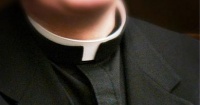The New York Times had an interesting article about preliminary results on the health of clergy. What the data shows, however, is not good. Clergy apparently experience large amounts of stress, coupled with an equally large amount of responsibilities, and are becoming physically unhealthy as a result with obesity, hypertension, and depression becoming more rampant.
A lot of work is being done at Duke University, specifically their Clergy Health Initiative. The article mentions their first round of results:
Compared with neighbors in their census tracts, the ministers reported significantly higher rates of arthritis, diabetes, high blood pressure and asthma. Obesity was 10 percent more prevalent in the clergy group.
These physical ails are not limited to just groups in mainline Protestantism, as Catholic and Muslim leaders said in the NYTimes article.
“We have all of these problems, but imams are reluctant to express it because it will seem like a sign of weakness,” said Imam Shamsi Ali, director of the Jamaica Muslim Center in Queens. “Also, mosques do not pay much and many of them work two jobs.”
Data like this has led some to wonder, however, whether it is even possible for clergy to be “off-the-clock.” The job is demanding, both physically and mentally. And with growing technology, it is more and more easier to connect at all hours of the day and night. Our very own G. Jeffrey MacDonald pointed to how even the role of the clergy has changed, causing lots of stress for the field:
In this transformation, clergy have seen their job descriptions rewritten. They’re no longer expected to offer moral counsel in pastoral care sessions or to deliver sermons that make the comfortable uneasy….I have faced similar pressures myself. In the early 2000s, the advisory committee of my small congregation in Massachusetts told me to keep my sermons to 10 minutes, tell funny stories and leave people feeling great about themselves. The unspoken message in such instructions is clear: give us the comforting, amusing fare we want or we’ll get our spiritual leadership from someone else.
I was interested in this phenomenon of clergy health, and e-mailed several directors of ministries studies at divinity schools across the nation to hear what they had to say:
Frederick Streets, adjunct Associate Professor of Pastoral Theology at Yale Divinity School and Professor in Pastoral Counseling at the Wurzweiler School of Social Work at Yeshiva Univeresity in New York City:
Have you noticed a change in the health of clergy today? Absolutlely. Some Clergy have a hard time distinguishing between selfishness and self interests. They somtimes use the wrong criteria to measure their sense of effective and success as clergy. This leads them to having high but, unrealistic expectations of themsleves, their famlies and congregation and as a result they experince a great deal of frustration.
Livining a healthy lifestyle has to be integrated into the total everyday life of the clergy and not seen as just having ocassional breaks as imprtant as those respites are for the clergy.
Cynthia Lindne, Director of Ministry Studies and Clinical Faculty for Preaching and Pastoral Care, University of Chicago Divinity School:
A 2007 NORC study that surveyed job satisfaction among Americans found that clergy ranked at the top of the list in both job satisfaction and personal happiness, by self-report. While these findings seem at odds with the clergy wellness studies reported in the Times, I suspect that the truth is that the work of ministry can cut both ways–either profoundly satisfying, or deeply alienating…with most practitioners probably knowing seasons of both.
I’d suspect that there are bigger and broader reasons why clergy burnout seems to be on the rise….Ministers are no longer simply preachers, worship leaders, teachers and caregivers–they are often also administrators, social workers, community organizers, small businessmen, and building managers.
I’ll keep posting responses as they arrive in my inbox.





